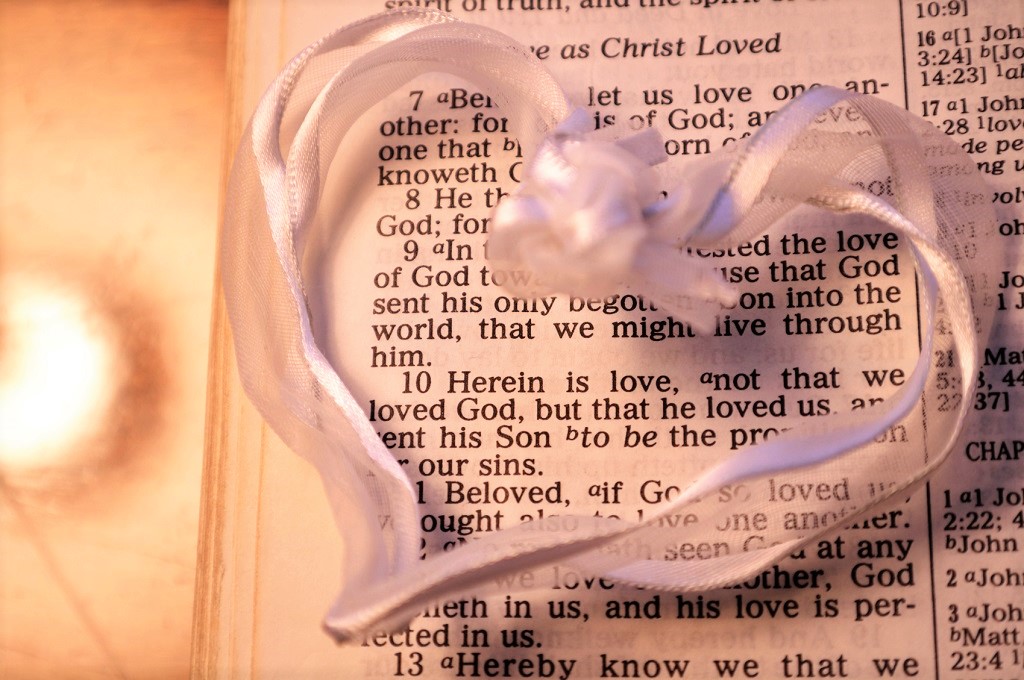Every Mass begins with a prayer called the “collect.” The priest prays it right before the day’s readings. While it may slip by us sometimes, it’s good to pay attention. It typically gives us a “clue,” if you will, as to what we should pay attention to during the Mass.
The collect for today’s Mass begins: Almighty ever-living God, increase our faith, hope and charity, and make us love what you command…”
Make us love? That seems odd. Can we be made to love? Isn’t love an emotion, something we have little control over? How can we be commanded to love?
It’s true that our culture wants us to think that “love” is a warm, fuzzy feeling that we have little or no control over. “The heart wants what the heart wants,” right? We can’t help who we fall in love with. And yet, Jesus commands us to love. John 15:17 could not be more clear: Love one another as I have loved you.
Love, for Christians, is not a feeling. Feelings come and go, are not always rooted in reality and can lead us down the wrong path very quickly. How many of us have “fallen in love” with a person who does not have our best interests in mind? What about falling in love with someone we barely know, but with whom we’ve shared an intense event?
No, love is not a feeling, but an action. It is a decision. Further, it is a decision to put the needs of someone else before our own. Deacon Keith Fournier, talking about the foot-washing of Holy Thursday:
The Love of Christ is made into symbolic action, because Love is a verb. Love is a command, a mandate. This foot-washing is more than a re-enactment; it is an invitation to participate in the ongoing redemptive mission of Jesus Christ through His Church.
The Eucharist is the “Sacrament of Love”, in the words of our beloved Holy Father Benedict XVI. In that first Encyclical letter he underscored not only the depth of the Mystery revealed in that penultimate Sacrament, but he also connected that Sacrament – and our participation in it – to our choice to live lives of love in the real world.
Sometimes love requires us to do very difficult things: to confront a loved one who is enmeshed in addiction, to stand at the bedside of a dying friend, to discipline a teen who screams, “I hate you!” No parent wants to get up at three a.m. to tend to a terrified toddler who’s had a nightmare. The saints stand as example: choosing to care for the destitute and dying, the leper, taking the place of one slated to die. There is no romantic feeling when we ourselves are in pain and choose to offer up our suffering in union with Christ’s.
Christ can command us to love because love is a choice. In his encyclical, Deus Caritas Est (God is Love), Pope Emeritus Benedict XVI takes up the question of being able to love upon command.
The love-story between God and man consists in the very fact that this communion of will increases in a communion of thought and sentiment, and thus our will and God’s will increasingly coincide: God’s will is no longer for me an alien will, something imposed on me from without by the commandments, but it is now my own will, based on the realization that God is in fact more deeply present to me than I am to myself. Then self- abandonment to God increases and God becomes our joy (cf. Ps 73 [72]:23-28).
Love of neighbour is thus shown to be possible in the way proclaimed by the Bible, by Jesus. It consists in the very fact that, in God and with God, I love even the person whom I do not like or even know. This can only take place on the basis of an intimate encounter with God, an encounter which has become a communion of will, even affecting my feelings. Then I learn to look on this other person not simply with my eyes and my feelings, but from the perspective of Jesus Christ. His friend is my friend. Going beyond exterior appearances, I perceive in others an interior desire for a sign of love, of concern. This I can offer them not only through the organizations intended for such purposes, accepting it perhaps as a political necessity. Seeing with the eyes of Christ, I can give to others much more than their outward necessities; I can give them the look of love which they crave.
“Seeing with the eyes of Christ:” this is how we are able to love upon command. We abandon our wishes, desires and needs and instead put the other first. We see them as Christ sees them: God’s creation, imbued with dignity and worthy of our time, our help, our love.
Love is a choice; God never forces us to do anything. We are free creatures. But if we follow Christ, we must follow his commands and He commands us to love. We choose to love “in the real world,” as Deacon Fournier says: that world of death, angry teens, broken relationships and sin. We love – not as a feeling – but as action, acting as Christ would, seeing others with his eyes.
Today, let us pray with the whole Church: Almighty ever-living God, increase our faith, hope and charity, and make us love what you command…” Let us choose to love.


